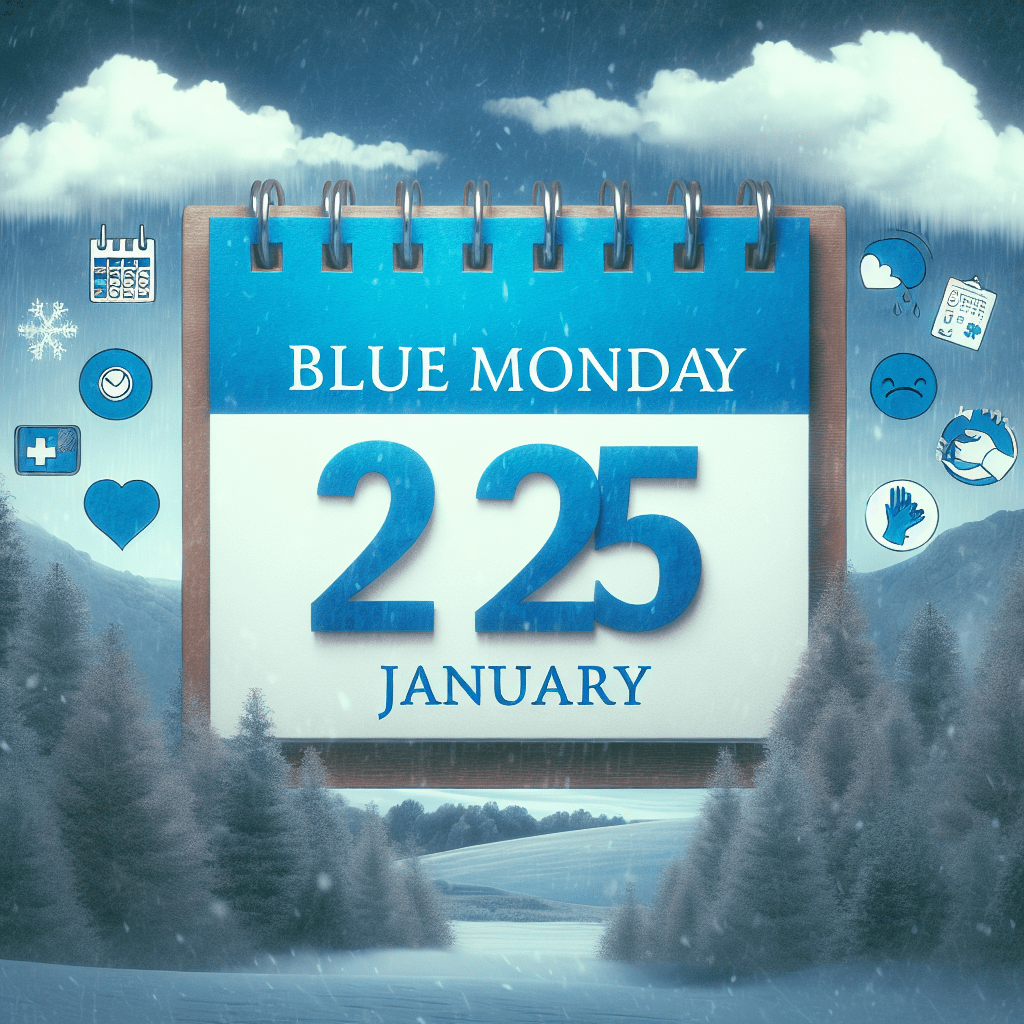What is Blue Monday?
Blue Monday is the name given to a day in January purported to be the most depressing day of the year. This concept was first publicized as part of a 2005 press release by holiday company Sky Travel, which claimed to have calculated the date using an equation. The formula considers factors like weather conditions, debt level (the difference between debt accumulated and our ability to pay), time since Christmas, time since failing our new year’s resolutions, low motivational levels, and the feeling of a need to take action. Typically falling on the third Monday of January, for the year 2024, Blue Monday is set to occur on January 15.
Despite its ubiquitous mention in media and popular culture, this concept does not have a solid scientific basis. Psychologists and researchers tend to stress that it is a pseudoscience, underscoring that the formula cannot be firmly validated and that depression cannot be calculated in such a simplistic manner.
The Significance of Blue Monday in 2024
Blue Monday serves as a symbolic day representing the culmination of several post-holiday effects that many people experience: the passing of festive celebrations, the arrival of colder and darker days in the Northern Hemisphere, along with compounded post-Christmas financial strains. As we approach Blue Monday 2024, these sentiments may still hold true for many.
In addition, such days often provoke conversations about mental health and encourage people to share their feelings and seek help if they are feeling low. Organizations and mental health charities might use Blue Monday as an opportunity to debunk myths about depression and stress the importance of combating stigma associated with mental health issues. This could also lead to increased attention being paid to employer policies related to workplace mental health around this time.
How People Cope with Blue Monday
Individuals and communities often find different ways to beat the so-called “most depressing day of the year.” Activities and strategies range from spending time with friends and family to engaging in physical exercise, all of which can help lift spirits and counter the factors leading up to Blue Monday.
Proposed initiatives to cope may include:
– Wellness programs and workshops held by different organizations
– Promotions by companies to ameliorate the financial burden or offer experiences that distract from the gloominess
– Social media campaigns inspiring positivity
– Special events held by cities or community groups for social engagement
Awareness around Blue Monday can also stimulate a positive move towards practicing ongoing mental.self-care and encouraging seeking professional support if necessary. The proactive approach of the community can thus create a framework of supportiveness and awareness around mental health not just for this specific day but throughout the entire year.
Criticisms and Scientific Scrutiny of Blue Monday
The idea of Blue Monday has been subject to scientific scrutiny and criticism. Experts argue that determining a precise day for widespread depression trivializes the complexities of mental health issues. Furthermore, they suggest that implying a single day represents peak sadness could misinform people about how depression works, potentially leading those with serious mental health problems to delay seeking necessary help.
Critics also question the motivations behind originating such a day, which may drive consumerism through travel deals or retail therapy offered as mood enhancers. In this perspective, Blue Monday could be perceived as more of a marketing gimmick than a day with any psychological validity.
Preparing for Blue Monday 2024
As we approach Blue Monday in 2024, businesses, communities, and individuals may all be contemplating how best to manage this time of year constructively. With awareness and consideration for mental well-being trending globally, we could see a more sophisticated range of responses that lean towards genuine self-care rather than commercial exploitation. The leadership in creating an environment where mental health is openly discussed should ideally extend beyond just one day.
While there’s no one-size-fits-all solution to handling difficult periods like Blue Monday, there’s value in shared recognition of common struggles during the winter months, which can serve as a foundation for communal support and individual coping strategies.
